Nothing but the truth
For the third year in a row, one of the significant events of the Eurasian Economic Youth Forum is the Media Forum. Its participants include leaders and top specialists from major federal and regional media outlets, both Russian and foreign. In 2025, over 60 experts takes part in it.
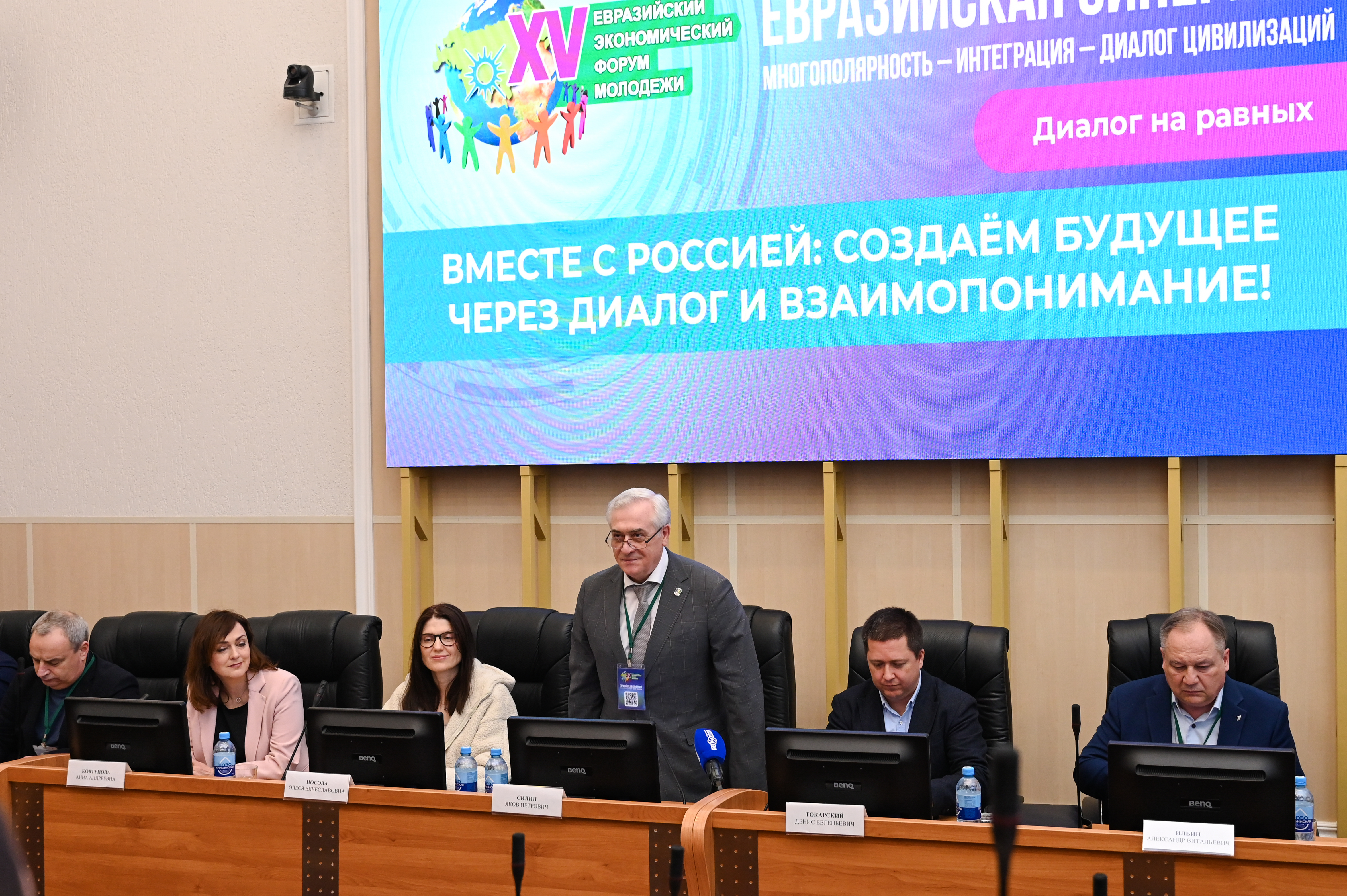
The theme of the 3rd Media Forum was formulated as “International Cooperation in the Media Sphere: Exchange of Experience and Best Practices.” A plenary session took place on April 21 at Ural State Economic University (USUE) – the main organizer of the forum.
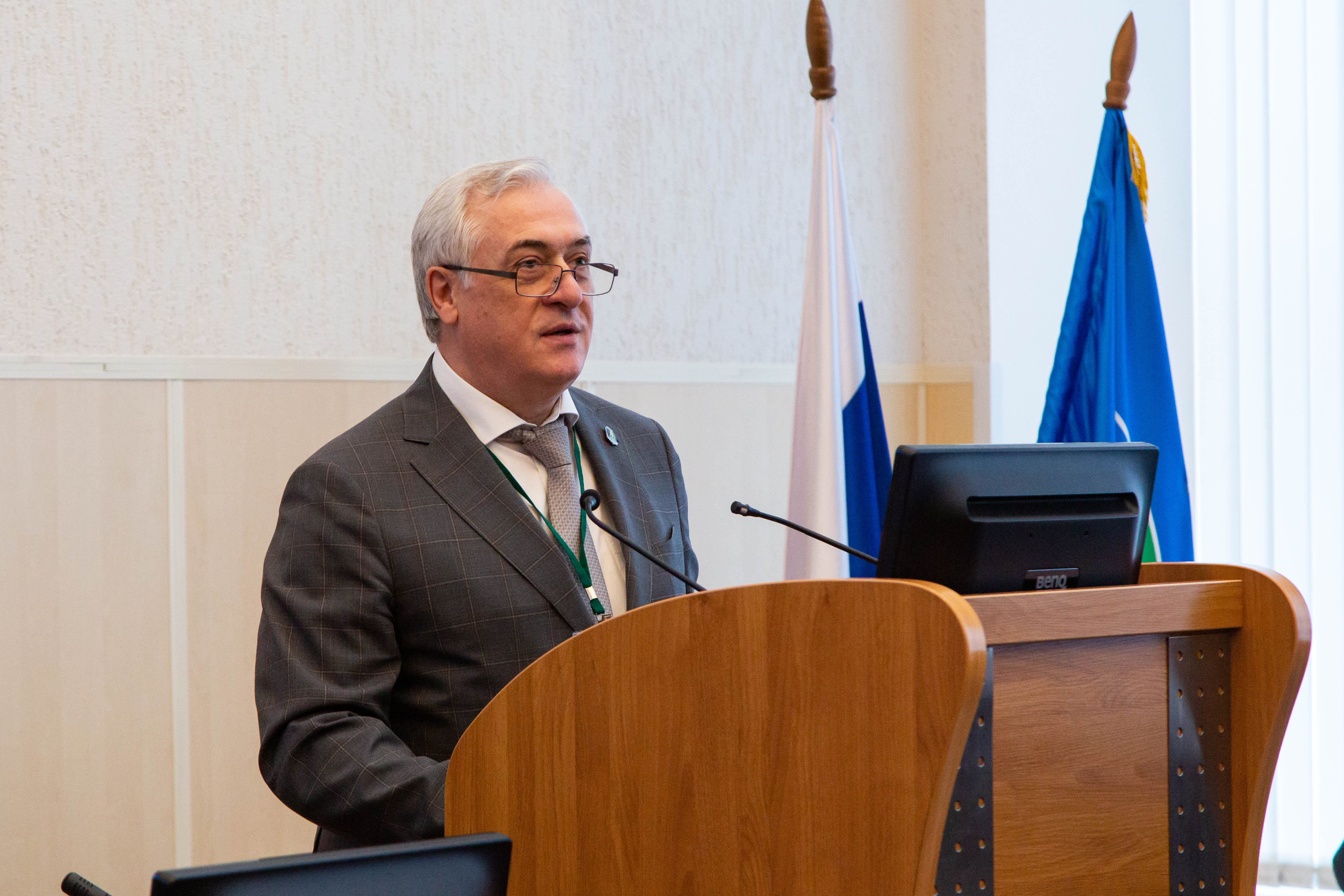
“The EEYF platform provides a wonderful opportunity to meet youth from different countries, who are passionate about science, exploring various aspects and problems of the modern economy, ecology, and geopolitics. This is our future, and as you can see, it is in safe hands. We are training future managers, and journalists help us tell what the economy will be like and what social problems will exist. It is very important for us that the international journalistic community has the opportunity to meet, share experiences, and collectively find answers to the challenges of modernity. Much as collective West tries to isolate Russia, it does not succeed, and this is also thanks to the media in our country and friendly states and due to experienced journalists who seek the truth and look deeply into situations. Many of us look at the world through your eyes. I wish you fruitful work and new ideas!” Yakov Silin, USUE rector, welcomed the participants of the Media Forum.
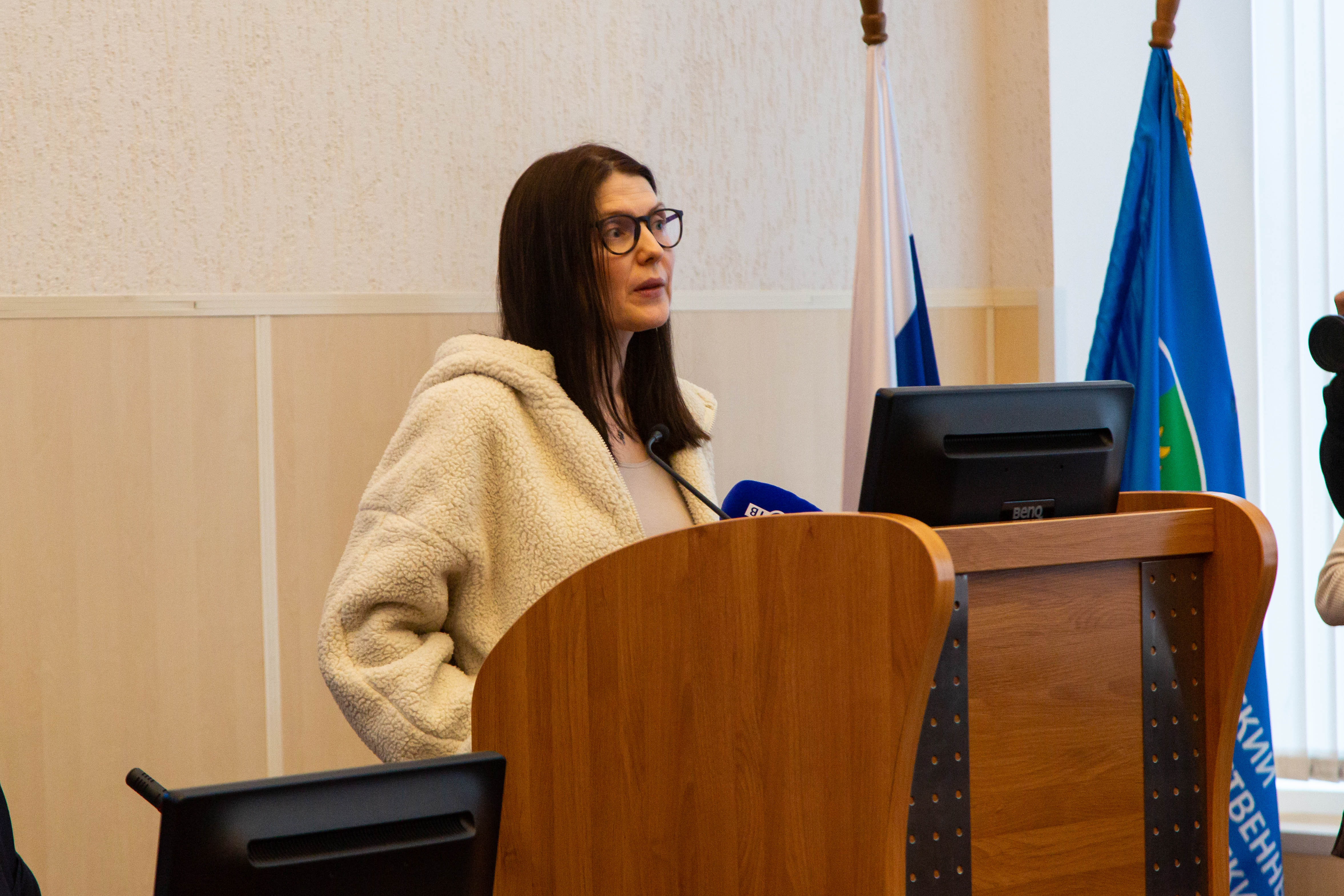
Journalists discussed key issues in the development of the media space. General Director of the Komsomolskaya Pravda Publishing House, Olesya Nosova, told how one of the oldest newspapers in the country sustains the popularity of its print version, how the editorial team is learning to work with artificial intelligence, and how it opposes fake news.
“Many people already understand that internet, in its pursuit of speed in news delivery and simplicity in preparation, can suffer in terms of quality and reliability. Neural networks have also made it possible to create very plausible fakes that spread virally in the media space, and my colleagues and I have to debunk them. Meanwhile, journalists at reputable publications check information against all possible sources and take responsibility for the results of their work. Yes, we also use neural networks, but we trust them to find newsworthy events and customized information for articles. And we always double-check all the provided results,” Olesya Nosova emphasized.
The availability of newspapers also helps sustain their popularity, added Olesya Nosova. In recent years, there have been significant restorations in the distribution of printed press, and now it can be purchased in chain stores.
The search for new formats of communication with the audience remains a constant challenge. But at the same time, it creates a special atmosphere of creativity and unites the editorial team. For example, Olesya Nosova herself has been working for KP for 30 years, and many in her team have a similarly rich background.
“It’s never boring because the editorial team is constantly looking for new ways to communicate with the audience, especially with young people. We are always coming up with different projects to convey important meanings to the youth,” she explained.
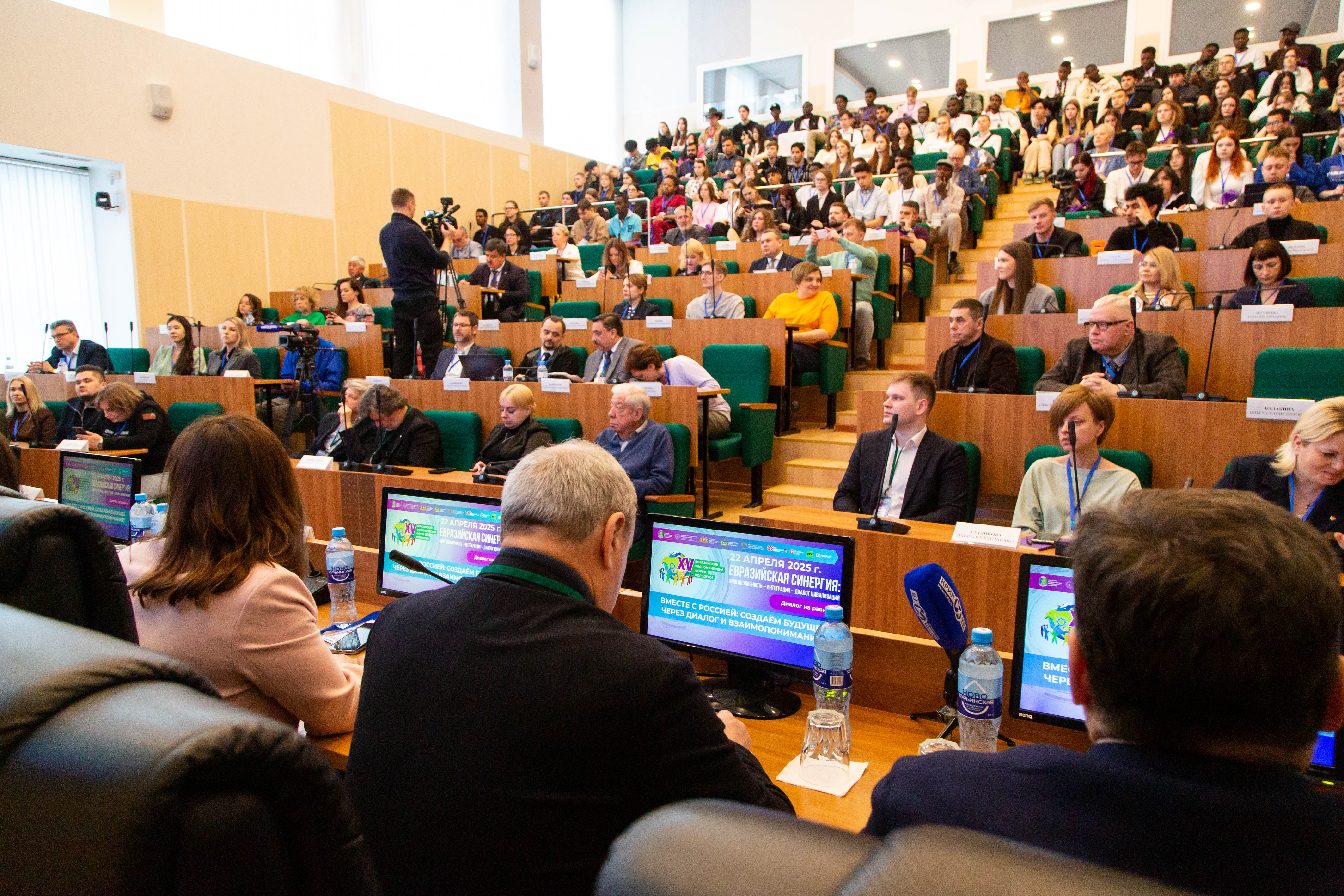
Thanks to continuous transformation and adherence to the principles of the Russian school of journalism Komsomolskaya Pravda, the general information partner of EEYF and co-organizer of the Media Forum, celebrates its 100th anniversary in 2025.
This year, Russia Today an international channel with a multilingual network of news and documentary programs, is also celebrating its anniversary. The RT team not only covers significant events but also conducts a series of educational workshops for journalists in Russian, English, Chinese, French, and other languages.
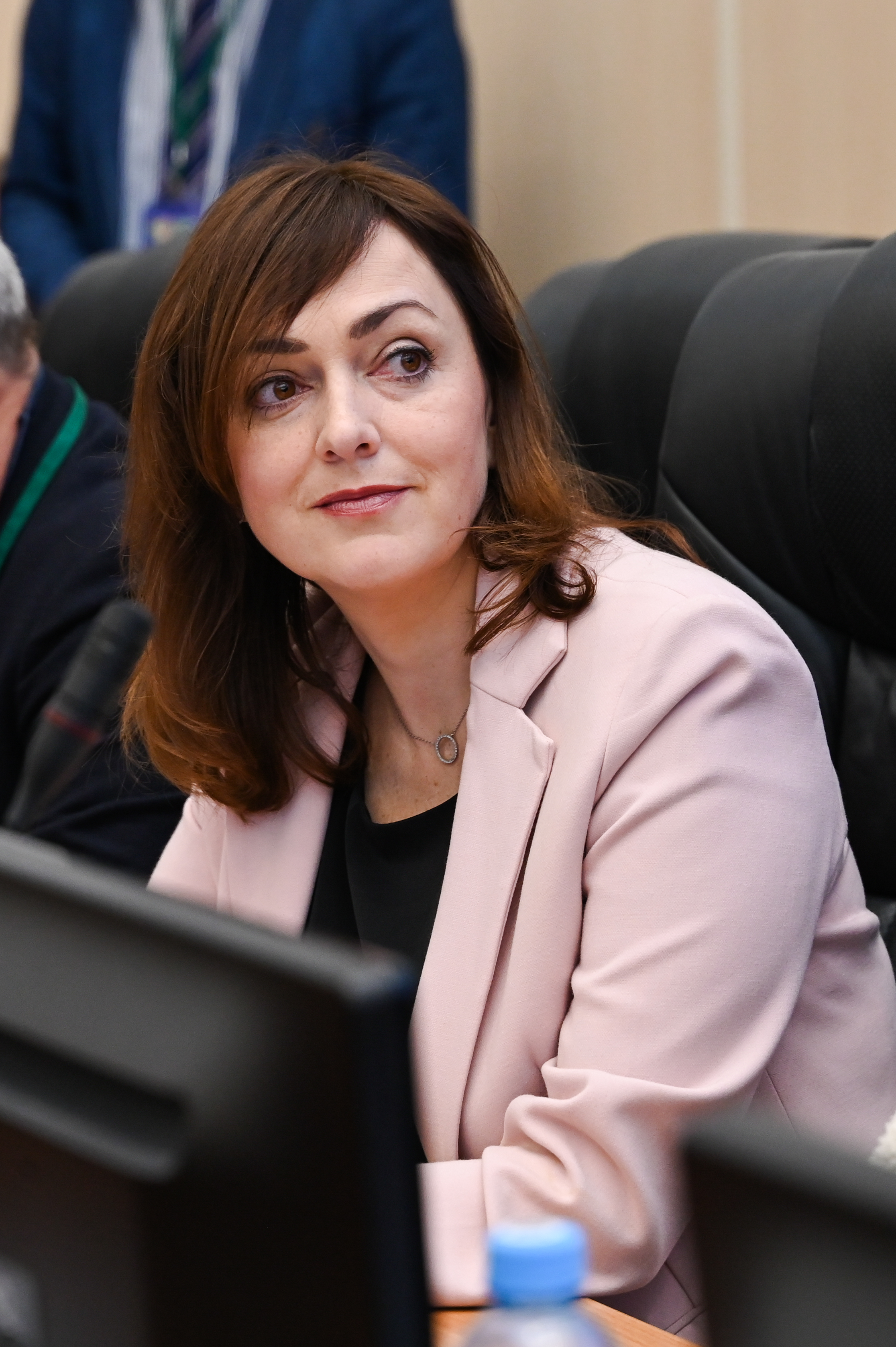
“We share our knowledge and skills in working with new formats, artificial intelligence, verification, and combating fakes. This helps develop the entire professional community of journalists, as well as convey to them an alternative point of view on current events. This is in great demand now. In the context of sanctions and blockades, few people abroad manage to hear the voice of Russia. At our educational workshops, we teach how to form an alternative viewpoint and not only regarding Russia,” noted Anna Kovtunova, head of the educational projects department at Russia Today.
The level of Russian journalism today evokes great respect abroad, adds an RT expert. No matter how glorified Western media are, they lack creativity – all news is prepared in the same way as it was decades ago and is permeated with propaganda that is presented as objective fact, Anna Kovtunova explained.
“The development of a creative approach to work is greatly aided by technical readiness and the ability to work with the achievements of progress. We see many talented journalists in African countries, but they are not allowed to fully uncover themselves due to the material base of the editorial office. Nevertheless, the training helps them hone their skills and fall in love with the profession anew. And such an atmosphere of interest, ambition to develop and come into the spotlight is also present at EEYF – it is a broad-scale event with participating students from 116 countries. One can see how interested they are as they listen, ask questions, and how their eyes are just shining with enthusiasm. I hope the forum will continue to thrive and that the number of participants will further increase,” Anna Kovtunova concluded.
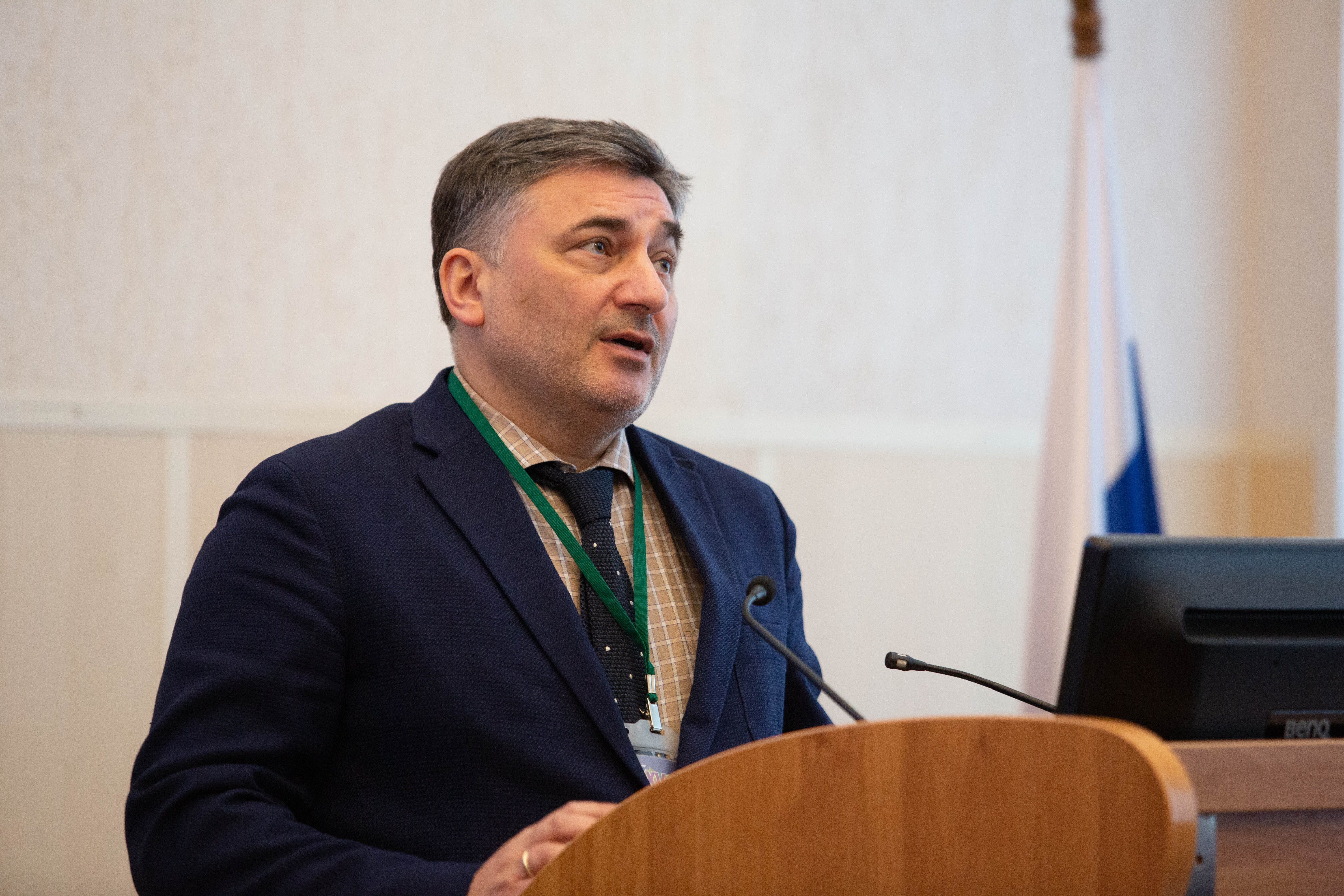
The search for new approaches to the audience was also noted by Anton Tretyakov, general director of Oblastnaya Gazeta. He told how the news-paper found a key to the young audience. Two years ago, the newspaper changed its course and positions as a source of positive news.
“It is important for both Russian and foreign partners in our region to associate the Sverdlovsk region not only with some incidents but to know how we live every day to see our achievements. Teachers should know what is happening in education, doctors should be aware of developments in the medical field, and all residents should know what is changing for the better in their communities and what opportunities are being shaped for them. Today, it is the main subscription edition for all Sverdlovsk government-paid employees, and this is not due to the demands of municipal administrations but rather thanks to our subscription campaign. This year, the newspaper is celebrating its 35th anniversary, and thanks to transformations, its audience consists of readers aged 35 and over,” Anton Tretyakov said.
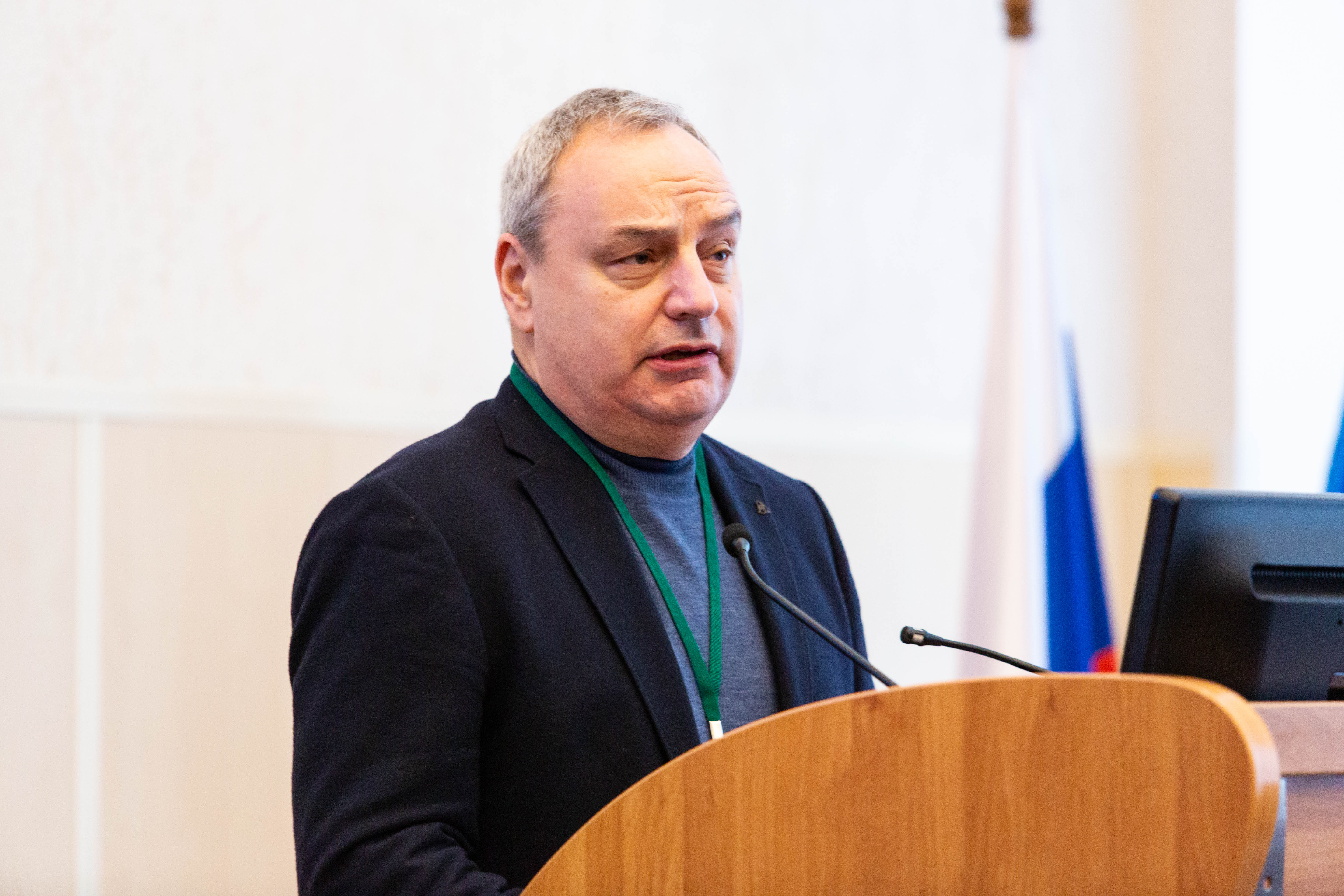
Apart from that, Oblastnaya Gazeta publishes versions in foreign languages for the international INNOPROM exhibition in Yekaterinburg so that foreign partners can become acquainted with life in the region. It collaborates with the Minsk News Agency: exchanging interesting news and professional experiences. The first deputy general director of Minsk News, Andrei Bass, added that Oblastnaya Gazeta was the agency’s main partner in the Urals. Overall, in Russia, Minsk has 13 sister cities with media outlets that have cooperation agreements.
Speaking about the main successful practices of the agency, Andrei Bass emphasized cross-media – delivering news simultaneously through several channels: via newspaper, website, social media, radio, and so on. This expands the coverage, allows for information to be conveyed to a diverse audience in terms of age and worldview, and helps generate new ideas, including in government policies.
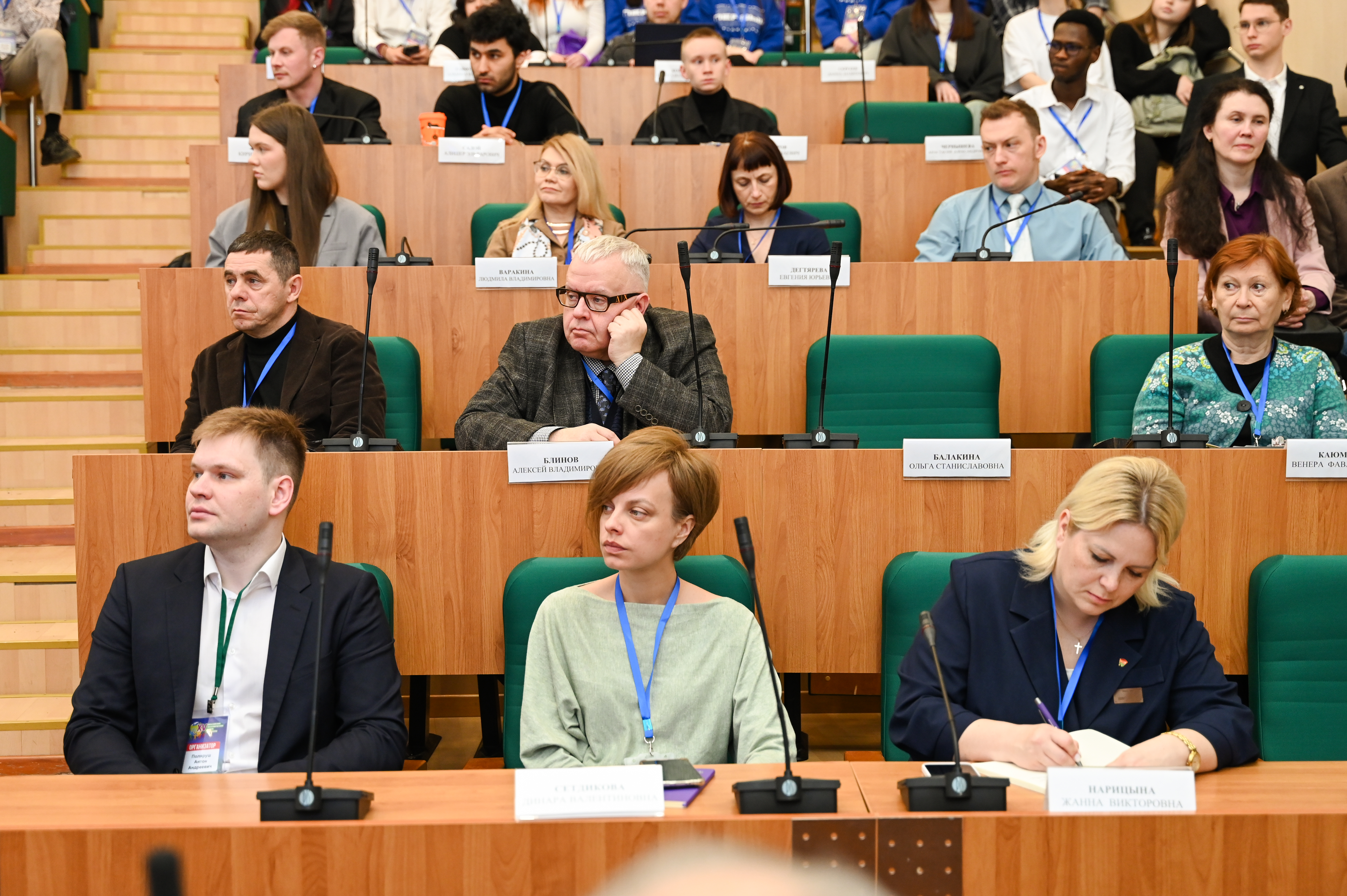
Director of TV science programs at Channel One, Andrei Tsvintarny, expressed gratitude to the EEYF organizers for the forum steadily growing and gradually turning Yekaterinburg into the capital of the youth economy. The expert discussed socially significant projects that attract the audience’s attention and help change hundreds and thousands of lives for the better, including those of doctors, teachers, children with difficult fates, and SVO participants. The expert especially highlighted the importance of the work of military correspondents in the area of the special military operation – they are the ones who gather truthful information on how defenders of the Motherland perform their daily feats, under what conditions their service takes place, and what they have to deal with on the front lines.
“Sometimes, reports don’t yet go on to air but their heroes are no longer alive. Military correspondents also perish. I invite to observe a minute of silence in tribute to the memory of all those fallen,” Andrei Tsvintarny said. After these words, the audience stood up.
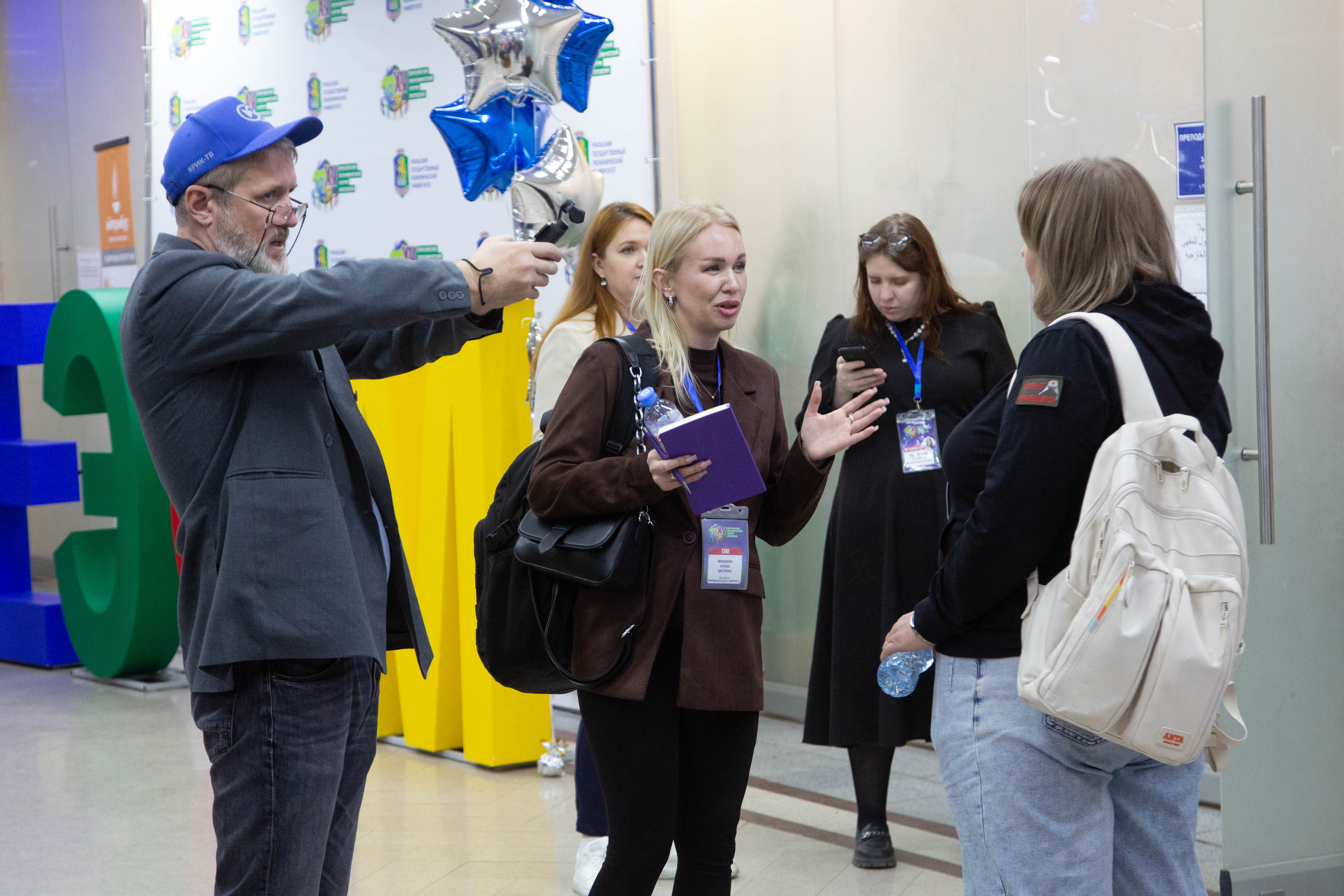
The editor-in- chief of the news department of Mariupol-24 TV channel, Natalia Mnatsakanyan, spoke about the work of journalists in the new regions of Russia. She emphasized the importance of operational and credible information, mutual support, and conveying the real state of affairs in the DPR and LPR to the public and authorities.
“At first, there were difficulties with equipment for the television channel and with making our people to uncover themselves to journalists, to trust them with their stories, but now peaceful life has come, and it is much easier for us. We also exchange information with colleagues from neighbouring cities and cover everything happening in the region,” Natalia Mnatsakanyan explained.
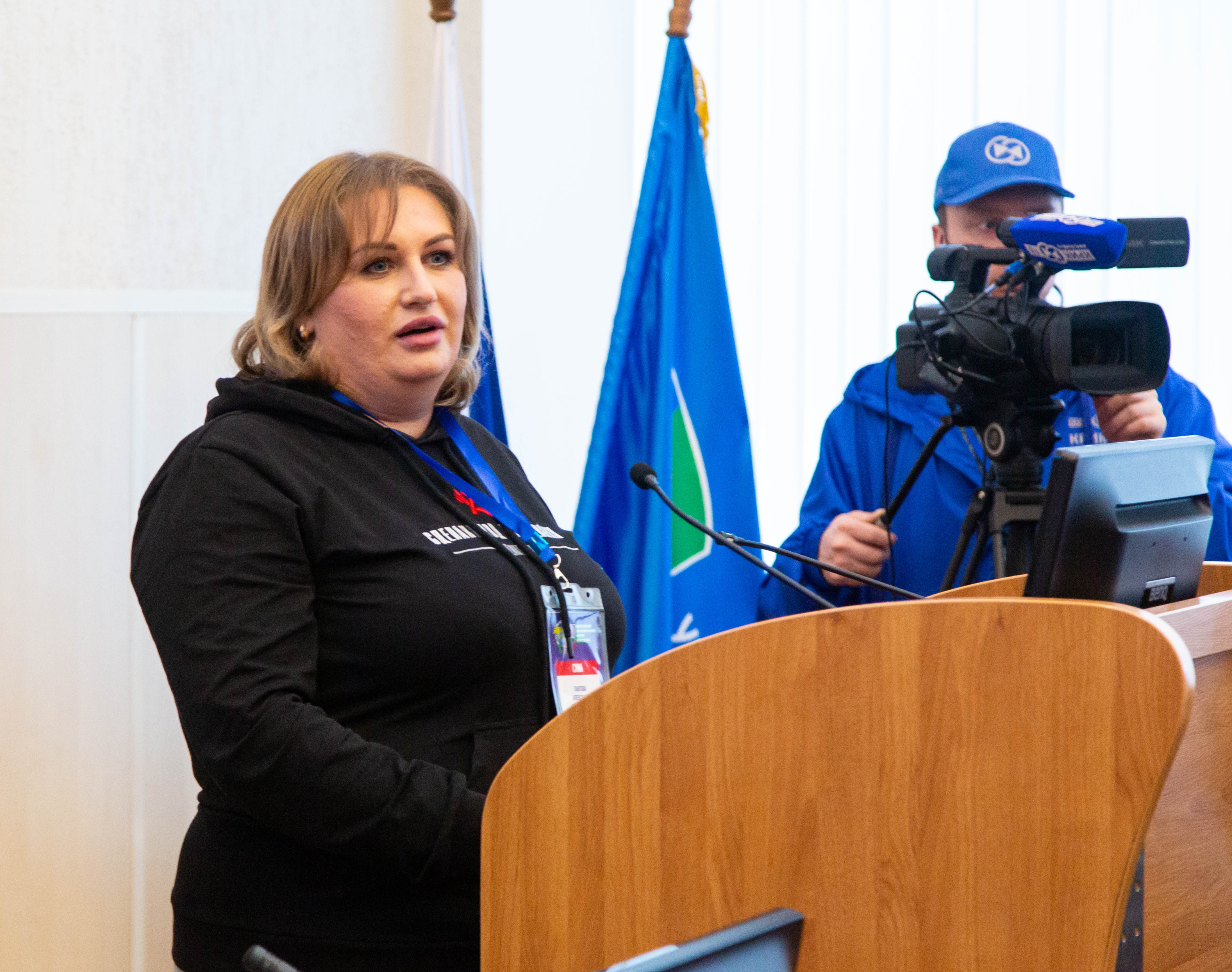
Military observer of the Zvezda television channel, Alexandra Pavlova, shared her experience of working on the front lines. The journalist not only covers events in the SVO zone, she serves in the Armed Forces of the Russian Federation and is an official participant in the SVO. She has been wounded twice and reported on shelling of civilians in the Belgorod region. She was then invited to accompany a tank regiment. She came under fire again. She highlighted the liberation and restoration of Avdeevka.
“In such settlements, often only elderly people remain – it is very difficult for them to get to places like Donetsk, where their children live. They need at least bread, water, and basic medicines – they need to survive! After all, even burying the deceased civilians was not permitted by the fascists. When you’re on the front lines, you start ‘burning out,’ wishing to go home, but you stay to tell the terrible truth so that people know and remember,” the war correspondent confided.
Summarizing the plenary session, USUE rector, Yakov Silin, thanked the speakers and invited journalists to participate in master classes from leading media experts, which traditionally followed the Media Forum.
